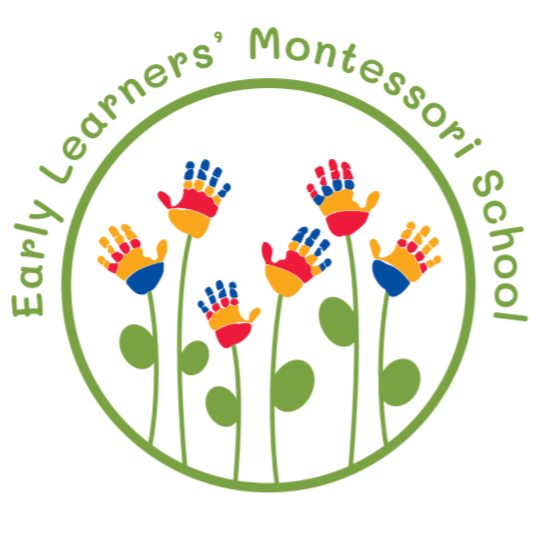"Free the child’s potential and you will transform him into the world"
~ Maria Montessori ~
Toddler / Precasa program (For children, 18 months - 2.5 years)
Early Learners’ Montessori School’s toddler / precasa classroom environment has been thoroughly prepared, the child is guided and encouraged through development processes, such as gross motor development, fine motor control and introduction to self-help skills. This Montessori environment is prepared to aid the young child in achieving independence, social interaction with other children, as well as the development of language, music and movement. ‘Individual work’ found in the Early Learners’ Montessori School’s Toddler/pre casa curriculum involves language based activities and hand-eye coordination exercises.
A child’s early stages of development play an essential role in his or her growth of character. If the mind is stimulated during this period, through exposure to a nourishing environment, it fosters a lasting ability to learn and accomplish. At Early Learners’ Montessori School we understand the importance of early childhood education, our Toddler/Pre casa Montessori programs are designed to “follow the child'' to provide a variety of learning opportunities so the toddler can explore based on their curiosity and mobility, not just their age.
Our toddler program includes four core areas:
-Practical Life
-Movement
-Sensorial
-Language
All children enjoy two hours of outdoor playtime in our state-of-art rubber-safe surfacing playgrounds.
Areas of focus for Early Learners’ Montessori School Toddler/Pre-casa Program:
Learning Highlights
Fine and gross motor skills, control and coordination of movement, body awareness
Language development and vocabulary enrichment, self expression, early literacy skills
Sensorial activities, sorting, classifying, grading, development of early math skills
Science, Gardening, Food and Nutrition
Practical Life, Yoga, Music, Sensorial, Dance, Art
Nature based learning and programming
Physical Education
Areas of Growth
Cognitive development
Speech and language development
Active, concrete learning using all senses to explore the world
Confidence, kindness, grace and courtesy
Physical mobility and greater coordination, fierce drive towards independence
Self care, practical life skills and independence (ie. dressing oneself, toilet learning)
Social skills and cooperation, responsibility, collaboration, manners, compassion

